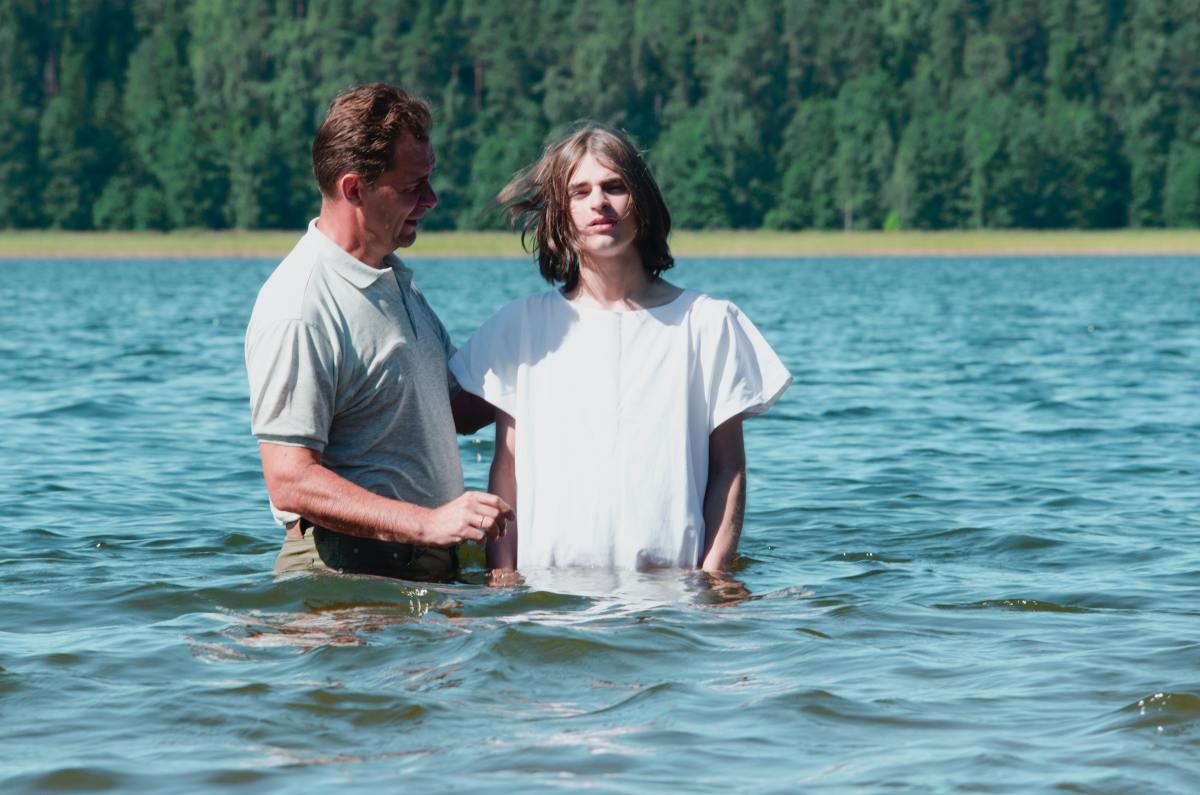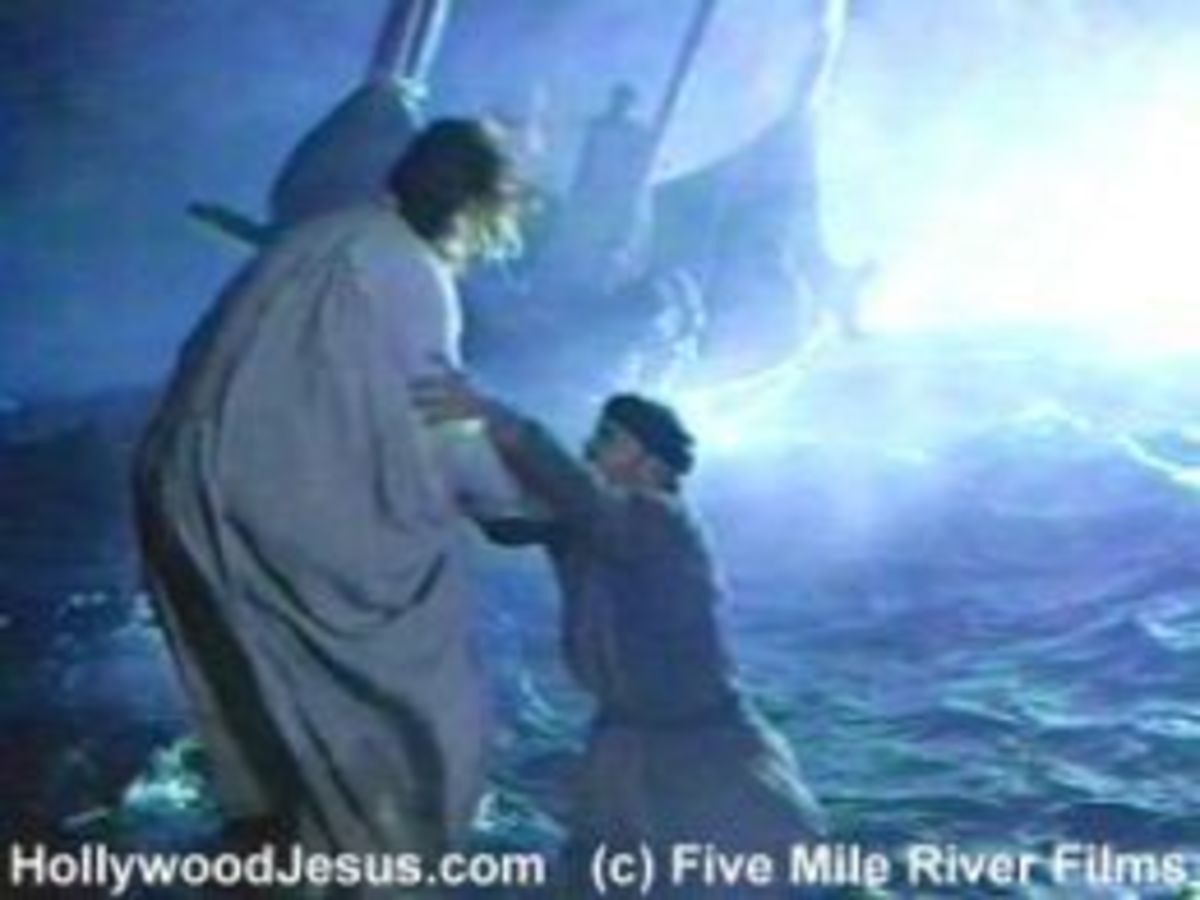Baptism. what is it?
Why a Hub on Baptism?
I have an interesting background, or at least I think it is! I wasn't really raised in any Church background, yet as a teenager I found myself seeking to find out what things were all about and what some things meant.
Don't get me wrong, I always believed in God and somehow knew that there was 'more to it' than I was being told but beyond that I didn't have much to go on. As a child I went to the local Church of England (Anglican to the rest of the world, Episcopalian in the USA) but beyond that it didn't mean much!
When I did start to get things sorted out and really look into the Bible I started to go to a pentecostal church and one of the first things I realized is that Anglicans and Pentecostals have a very different outlook on the Bible (or so it seemed).
Time in the Military, Bible college and on the Mission field have shown me that there's so much that Christians do differently to each other that I wondered at times which one had the truth, or did each have a part and not realize there was so much more to enjoy.
One of the areas that Christians do differently is the idea of Baptism. Some baptize infants (who seemingly can't know any different) while others only baptize as adults and yet another group has an extra bit called 'baptism in the spirit' (what's that all about?) and they sometimes disagree with each other about what each should accept!
Having spent time in each of the traditions (and loving them) I want to take us on a journey to explore each of these traditions and find some gold nuggets that we can take away from each. I'm not trying to persuade that any one is better than the other but give an honest picture to those wondering what this whole idea of baptism is and where do the ideas come from.
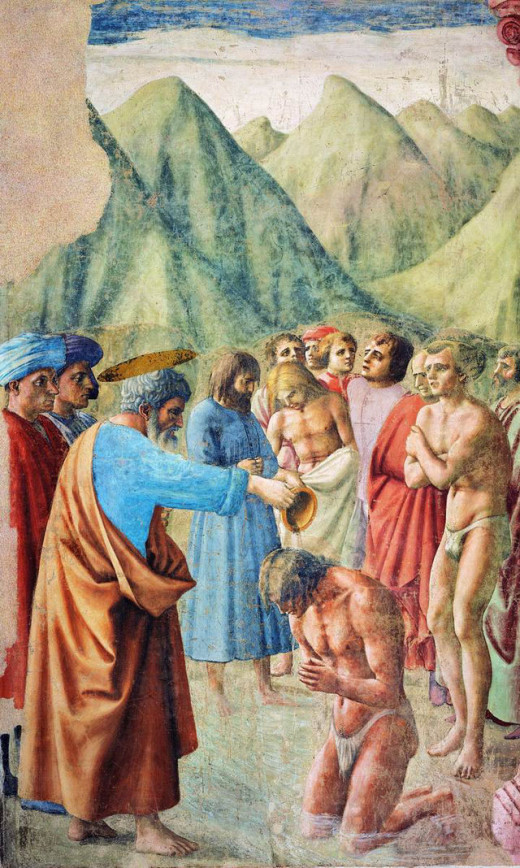
What is baptism?
One of the most potent symbols of the Christian faith is the rite of Baptism. It means many things to many people. Some baptize infants where other parts of the faith wait until the person is an adult or wants to follow in the rite, but what does it mean? does it mean different things to different people?
Why do Christians do baptism differently?
In this hub I want to explore a little of what it means to baptize and to look a little at where the traditions come from. It's a journey through the history of the church as we find out what this most precious rite is for the believer and what it means to many of us.
What is it?
The word comes originally from the Greek word βαπτισμα (pronounced Baptisma) literally meaning the process of immersion (Taken from the Vines expository dictionary of Biblical words). It can also mean submersion and emergence from something. This is where the word comes from and it literally means to be immersed in or submerged in something so when we are baptized we are literally immersed into Christ.
Baptism is one of the oldest and most cherished rites of passage in Christianity. (Of the seven sacraments of the church only Marriage is the older) And its the first one that a new believer would encounter as they enter into the faith.
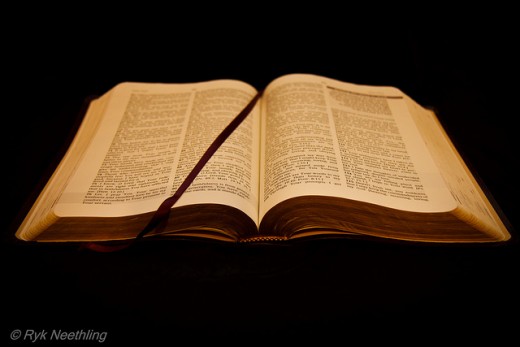
Origins. Where did it come from?
Would it surprise you if I told you that Baptism originally came from the Jews? The meaning for them was different to what it is for us today but it's roots are in the Jewish faith of Jesus' day.
To the Jew of Jesus' day Baptism was a ceremony that took place as a sign of repentance from the old life. A turning away from the way they had been and a turning back to God.
John the Baptist (or Baptiser) is the first person in the scripture that we come across using this way to call people back to God. In the gospels we hear John's message ringing out in the first chapters of the New Testament calling the people back to God and 'Making a straight path for the Lord' (Matthew Chapter 3) "The voice of one crying in the wilderness. Prepare the way of the LORD and make his paths straight" (Matthew Chapter 3 verse 3 quoting Isaiah 40 Verse 3. The same story is told in Mark's gospel, Luke Chapter 3 as well and finally a similar story is found in John's gospel with the added snippet that Andrew and John were originally disciples of John the Baptist!
John the Baptist wasn't the first person to use this symbol to call people back to God. It had become a Jewish practice possibly from the time of Ezra and the return from the exile in Babylon. Baptism as a rite isn't found anywhere in the Old Testament but from the New testament story it's clear that it had become widespread.
John's Baptism was a signal of repentance and also wanting to identify with God's people. When Jesus was baptized by John he didn't need to repent but he did want to be identified with John and his ministry though John clearly wanted it that John identify with Jesus and his ministry when he asked "Lord, shouldn't it be the other way round. You baptizing me?
Baptism is both a sign of repentance and identifying with Christ.
Later on the Apostle Paul was to write extensively on the rite of Baptism and what it means for the Christian. That it is a way of identifying with Christ especially with the washing away of sins (the act of immersion) and putting to death the old person. The coming o of the water is a way of identifying with the resurrected Lord Jesus and living for him
John also told us that when the Messiah came he would bring another form of baptism.
In the early church most of the baptisms that were performed were for adults who had come into the faith but as the church grew and circumstances changed the sacrament of baptism also changed until today there are a number of ways that it's performed. I want to spend the rest of the hub looking at the two main forms of water baptism and the baptism that Jesus brought "With fire and the Holy Spirit"
- Adult immersion
- Infant Baptism
- Baptism in the Holy Spirit
A few subtle differences
As Christians we owe many of the symbols of our faith to the Jews of the Old testament and their practices. One of these is Baptism, but there are a few subtle differences that make them distinct from each other.
- Baptism in the Jewish tradition (Called Mikvah) can be repeated. Because in the Jewish tradition sin had to be dealt with on a yearly basis (Leviticus 16 and 17) the Mikvah could be repeated as often as was needed, sometimes on a daily basis. But Jesus dealt with sin once and for all time for the Christian (Hebrews 10 vs 11-18) so Christian baptism needs only to be performed once.
- The Jews knew the law and used it to affirm their identity. Most of the Christians who come for baptism are new believers wanting to make a statement of identity with Christ and what his death and resurrection means for them
This hub is really only an overview of baptism. There will be links below if you want to find out more. I;m not trying to argue for any one method, but give people an idea what the different groups within the church practice.
John baptizes Jesus
Adult Baptism
Adult baptism or believers baptism as it is sometimes known is practiced by every denomination in some form or other.
Jesus commanded his followers (and us) to go and make disciples of all the nations and to Baptize them in the name of the Father, the Son and the Holy Spirit (Matthew chapter 28 verses 18 to 20). The first followers of Jesus took this literally and many times in the New testament as we read about new believers we read of them being baptized almost immediately (Acts chapter 2 verses 38 to 42) because although they hadn't figured everything about baptism out yet (Paul wasn't to write the book of Romans for another twenty years) they took the words of Jesus literally and wanted to be identified with the followers of Jesus.
The movies always portray John the Baptist as standing in the Jordan calling people to be baptized and them going into the water. That is pretty accurate but the Bible doesn't really tell us whether the people were literally immersed in the river or whether they poured running water over them. Some scholars point out that the structure of the Greek indicates running water being poured, but the point is the same. Baptism is a way of identifying with Jesus and what he achieved for us at the cross. It's a way for us to identify with his death and resurrection (coming out of the water symbolizes the new life in Christ) it's our way of making a public declaration of our intent to follow him.
Today, every denomination practices this rite of baptism for people coming into the faith (and Catholics practice it for those coming from protestant churches). It is the means by which a person identifies with the Lord Jesus.
The Christian life is a daily walk of obedience to Jesus. Sometimes in the west we have portrayed the act of coming to faith as a 'one off' event and from that time on a person is a 'Christian' but that's only part of the story. It's actually meant to be a life of obedience to Christ and following his word as he leads us. One of the first acts in that walk of obedience is the act of Baptism in identifying with him and leaving the old life behind, that is what Adult or believers baptism is about. It's a statement of intent to follow Jesus as well as an acknowledgement that we are dead to our old ways.
Infant Baptism
There are those who say that infant baptism is not found in the Bible so we shouldn't practice such a thing. But before we go any further it might pay to spend a few minutes exploring where it came from and what the motivation is behind it.
Old testament
In the Old testament when a couple had a child there was a stipulation that the child was to be brought to the priest and sacrifice was to be made for purification of the woman (Leviticus 12 verses 1-8) This would have been the reason that Joseph and Mary were at the temple when they met Simeon eight days after Jesus was born (Luke 2 verses 21-36)
Christian Origins
Christianity has always been a 'poor man's faith'. Not that it didn't have wealthy and influential people who followed Jesus. There were some, but the majority of those who came to faith in the beginning were the poor and even slaves. In the Christian faith there the divisions between Jew and Greek, Lord and slave took backseat but there were issues.
From early on the first believers realized that 'There is none righteous, no not one! There is none who understands, none who seek after God' (Romans chapter 3 verses 10 and 11) and even the Psalmist David said 'Behold, I was brought forth in iniquity. And in sin my mother conceived me' and Sin is a barrier to God. For the adult, they can repent and turn to Christ for forgiveness, but what about the little ones. Those who die before they have the chance to understand the gospel (Do they go to heaven?)
The world of the early church was a cruel one where disease was common and infant mortality was often high. As a response to the situation the church began to think of a way that if the parents and friends would take responsibility to bring up a child in a godly way then until they reach the age when they can make their own decisions surely they can be accepted into the faith.
Infant Baptism actually has two parts, but it's only the first part that is thought of as the baptism or 'christening' with confirmation being thought of as separate. But I'm not sure that's the right way to go about it.
During the christening the parents and the 'godparents' promise to bring up the child in a godly way and that they will learn the ways of God from them. Many today just see it as a nice thing to do, but there are promises that are made that if we truly carry them out then the child will know the christian faith from an early age.
At the age of about thirteen in the traditional churches it is believed that the soul has grown to the point that the child can now know right from wrong and can themselves confirm their faith in Jesus, they are ready to become full members of the body of believers as a Spirit filled follower of Jesus.
What do you think?
What are your thoughts on infant Baptism
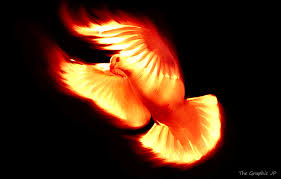
Baptism in the Spirit
John said that when the Messiah came he would baptize the people 'with the Holy Spirit and with fire' (Luke chapter 2 verses 15-18) Clearly a reference to an experience that wasn't widely known (if at all) in the days of the Prophets.
This was to be something new that would be brought and even the disciples of Jesus had no real idea what it would be, just that at the right time Jesus would bring it and they would be filed with the Spirit.
As Jesus was on the Mount of olives and literally minutes before he was taken away into heaven he told the disciples that they 'Shall be baptized with the Holy Spirit' (Acts 1 verse 3) and they 'would receive power when the Holy Spirit comes on them; And you will be witnesses to me in Jerusalem, Judea, Samaria and to the ends of the Earth' (Acts 1 verse 8). In other places in the scripture he'd told them that In my name you'll cast out demons, speak with new tongues, take up serpents, and if they drink anything deadly it won't harm them, they will lay hands on the sick and they will recover' (Mark 16 verse 17)
Acts chapter 2 tells us what happened on the day of Pentecost. Incidentally Pentecost is the Old testament feast of the 'first fruits' so the first fruits of Jesus' ministry came about on the Jewish feast of first fruits just as he said things would.
It's important to note that when someone comes to faith in Christ they can't do it without the Holy Spirit working in their lives. he comes into their lives and they receive him (John chapter 20 verse 21) but that's not what's being talked about with the Baptism in the Holy Spirit.
It wasn't until some time later that the disciples received the filling (total immersion in) with the Holy Spirit that Jesus had promised (John chapters 14 and 15) that they were given the authority to do the things that would be needed to proclaim the good news of Salvation in his name. Yes, they'd done great things while he was with them, he'd had the authority to command the demons and nature itself to obey but this was different, from this point on the disciples had ceased to be disciples themselves and had become Apostles (literally 'sent ones') with the authority to do these things. Life was about to get a whole lot more interesting!!
"Silver and gold I don't have, but what I do have I give you, IN THE NAME OF JESUS RISE AND WALK!' (Acts chapter 3 verses 1-11) Sometimes I wonder if Peter was still trying to get his head around the amazing filling that had happened. John and Peter are on the way to the temple when a lame man stops them and asks for money (alms) Peter's a poor man and has none, but what he does have he's only too glad to share with the man, the result is the temple in uproar that day and it caused such a commotion that we still read about it two thousand years later! It's become a blueprint of what can happen when we've been baptized in the Holy Spirit!
The book of Acts is probably one of the most action packed books ever written, I mean there are healings, deliverance from the demonic, riots and general mayhem caused by these new believers as they took the good news of Jesus wherever they went and just as Jesus said he would, there right in amongst them (inside them and filling them with his presence) is the Holy Spirit guiding and strengthening them (John 14 verses 25 to 31)
There are those in the church who say 'that was then, but this is now. The Holy Spirit no longer does that as we now have the Bible' But the fact is the Bible never says that the Spirit would stop this role! Paul does say that it will stop (1 Corinthians 13 verse 8) but he h=makes it clear that it's when all the things we know only a dim glimpse of now we will know in full when that happens (1 Corinthians 13 verse 9 and 10) in other words when Jesus comes back.
The Baptism in the Holy Spirit is for all believers today. He's there to fill us with his gifts, wisdom and grace. He has gifts for us to use for his glory that will lead to breaking down barriers to others knowing the Jesus we know and Love. The gifts include 'Words of wisdom, word of Knowledge, Faith (extra to the faith to believe), Healing, Miracles, Prophecy, Discerning of spirits, Gift of Tongues and interpretation of tongues ( ! Corinthians 12 verses 1-12) to name a few Combined with that is the fact that the Holy Spirit would manifest his presence in a believers life (without the believer even realizing) with the fruit that he brings "Love, Joy, Peace, Patience, Kindness, Goodness, Faithfulness, Gentleness and Self Control" (Galatians 5 verse 22)
Baptism in the Spirit
Do you think it's for today?
What do you think?
As I said at the beginning this Hub is only an overview on the subject. I hope that the hub has helped you understand a little more about why Christians believe different things about Baptism and its role in today's church
If you liked the hub then do me the honor of sharing it. If you've got questions then feel free to write them and I'll get back to you as soon as I can.
Blessings
For more information
- Infant baptism - Wikipedia, the free encyclopedia
What is it and where does it come from? - Confirmation - Wikipedia, the free encyclopedia
- Jewish origins of Christian baptism
Understand a little more of where it comes from and what John the Baptist was doing - Believer's baptism - Wikipedia, the free encyclopedia
A brief description of Adult baptism and why


